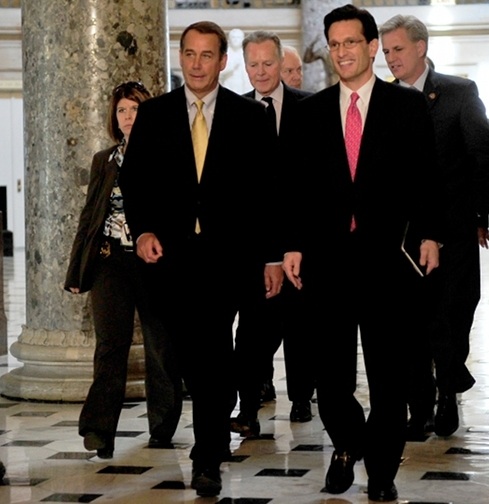The Republican plan to cut government spending by more than $60 billion dollars will cost the unemployment rate dearly, according to a new report from Moody’s Analytics.
According to Moody’s chief economist Mark Zandi — who the Washington Post reports “has advised both political parties” — Republican plans to slash government spending will impact the GDP in such a way that would eliminate hundreds of thousands of jobs this year and the next.
From the report:
The House Republicans’ proposal would reduce 2011 real GDP growth by 0.5% and 2012 growth by 0.2 percentage points This would mean some 400,000 fewer jobs created by the end of 2011 and 700,000 fewer jobs by the end of 2012.
Republicans were nonplussed by the findings.
“The fact that a relentless cheerleader for the failed ‘stimulus’ — which the Democrats who run Washington claimed would keep unemployment below 8 percent — refuses to understand that ending the spending binge will help the private sector create jobs is sad, but not surprising,” a spokesperson for House Speaker John Boehner told Bloomberg.
But the Moody’s report is the second outside report in recent days to find that the Republican’s slash-and-burn spending strategy (necessitated in part by pressure from the GOP’s tea party wing) will slow the economy dramatically while it’s still struggling to recover from the 2008 financial crisis.
ABC News reported last week on a confidential Goldman Sachs report which found the Republican budget “would be a drag on the economy, cutting economic growth by about two percent of GDP.”
In the Moody’s report, Zandi writes that some government spending reduction will be necessary (he says the government must “eventually” come up with $400 billion/year, either in cuts or revenue increases), but he warns that the Republican plan is “too much cutting too soon.”
“Significant government spending restraint is vital,” Zandi says, “but given the economy’s halting recovery, it would be counterproductive for that restraint to begin until the U.S. is creating enough jobs to lower the unemployment rate.”
Playing with the weak economy is a dangerous game, he writes.
“In all likelihood, the proposed House cuts would not undermine the current recovery,” Zandi writes. “Still, it is not necessary to take the chance.”






